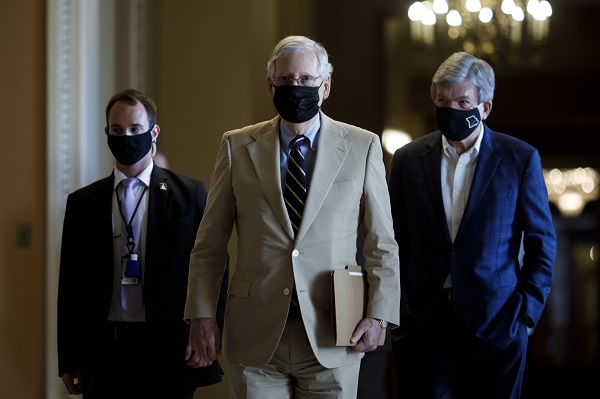Washington, (Samajweekly) The US Congress has passed another stopgap funding bill to avert a government shutdown and provide more time for lawmakers to vote on a newly reached Covid-19 stimulus deal, as many Americans were set to lose pandemic relief benefits by the end of the year.
The House of Representatives on Sunday night approved a funding measure that will keep the government open through Monday, Xinhua news agency.
The Senate passed the bill shortly after, and sent it to President Donald Trump to be signed into law.
Earlier in the day, Senate Majority Leader Mitch McConnell said that lawmakers have just reached an agreement on the long-awaited Covid-19 relief package, and will pass the bill as soon as possible.
“Congress has just reached an agreement. We will pass another rescue package ASAP,” the top Republican in the upper chamber said in a tweet.
“More help is on the way,” he added.
The $900 billion relief plan under negotiation was set to include another round of direct payments for individuals, federal unemployment benefits, and more funding for Paycheck Protection Program to support small businesses.
The last stopgap funding bill was signed on December 18, which averted a government shutdown until Sunday.
It came almost a week after Trump had signed a one-week stopgap funding bill to keep the federal government open through December 18.
House Speaker Nancy Pelosi and Senate Majority Leader Mitch McConnell had recently said that they want to attach a long-awaited Covid-19 relief legislation to an omnibus funding bill, which will keep the government open while providing targeted relief to households and businesses.
Among the unresolved issues in the Covid-19 relief negotiations are a Republican push to shut down the Treasury Department’s and Federal Reserve’s credit lending facilities; the scope of the direct checks; and a Democratic effort to include funding for state and local emergencies to be administered by the Federal Emergency Management Agency, according to The Hill, a U.S. political website.
Economists, as well as Federal Reserve officials, have repeatedly argued that more fiscal relief is needed to sustain the economic recovery, warning of dire consequences if further fiscal support is not provided in time.
As of Monday morning, the virus, which originated in China a year ago, has infected a total of 17,840,000 Americans and killed 317,667 others, according to the Johns Hopkins University.
The two tallies are the highest in the world, making the US the hardest-hit country by the pandemic.










